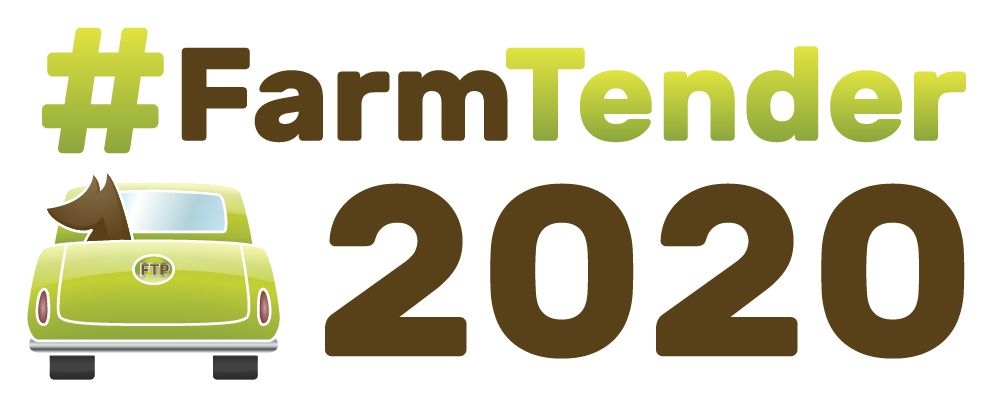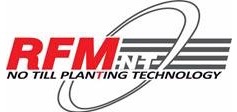Ag Tech Sunday - Trust is the new currency in Agriculture
- By: "Farm Tender" News
- Ag Company News
- Feb 29, 2020
- 630 views
- Share

This article is bought to you by RFM No Till.
By Jason Tatge - I build technology for the future of Agriculture.
Suspicion is the opposite of trust and, in a world where information quickly flows through social media, suspicion can bring trust into question — FAST.
I’ve recently become inundated with calls about agricultural data, access to that data and privacy. So, here’s my take.
If you call any agtech software provider with whom you work (from large corporations like John Deere, Climate or Granular to smaller players like Farmobile), you should be able to ask them, “In your systems, who has access to the ag data collected on my farm?” and “What is the intended use for the systems that access my data?” These shouldn’t be difficult questions to answer. They should be able to tell you or quickly produce a report that clearly states this information — or trust begins to erode and suspicions grow.
“ ... Ask them, “In your systems, who has access to the ag data collected on my farm?” and “What is the intended use for the systems that access my data?” They should be able to tell you or quickly produce a report that clearly states this information.”
The big problem here is that most are legacy systems, which were not designed and architectured to accommodate complicated permissioning structures. Ask anyone today, who works with farmers’ agronomy data, how they access the data. The number one answer will be, “on a thumb drive”. The number two answer is farmers must share their private login information and passwords with their trusted advisors so they can access the account and export the data they need.
Given today’s technology, agtech can do better.
Farmobile was founded on being open about data and establishing value in making data more accessible and useful in ways that are far safer than the methods listed above. Farmobile was designed and architectured to accommodate complicated permissioning structures allowing specific data to be shared in an environment of complete transparency. This develops trust.
The truth is, trying to “bolt on” these types of permissioning structures after-the-fact is extraordinarily difficult and expensive. Keep in mind the original intent of most data collection systems. They never were designed to let data leave these systems, but rather were built on the premise of housing the data into perpetuity and selling farmers’ products based on the contributed data.
Farmobile allows farmers to share data with trusted advisors and partners for free at any time when our Trusted Advisor Agreement is executed. Trusted advisors are an important piece of the solution as they are often the ones with the existing trust relationship with the farmer. Thus, this strong relationship is really theirs to lose.
The data access lines become fuzzy, however, in situations where the trusted advisor also serves as a retailer selling inputs that require farmers to use proprietary data collection devices in order for retailers to receive hundreds of thousands — even in some cases millions of dollars — a year in “rebate programs” for pairing digital ag tech with seed and chemicals sales. (This feels a lot like predatory bundling or even an improper tying arrangement...but that's for another post)
#FarmTender2020 - Focus on Farming Systems - June 5th, Bendigo, Vic

Tickets available now - click here
As a former commodity trader, I’m well aware of how much money firms are willing to pay for these types of proprietary data sets. Many of the approved buyers of Farmobile data consistently tell me they can get data sets much cheaper from other sources; but the quality is neither as good nor as easy to work with as the interoperable data they receive when purchasing through the Farmobile DataStore.
“ Trust is the new currency in agriculture. And, because of that — the way companies treat the data they are collecting from their farmers — is an issue that is not going to go away anytime soon. ”
Nobody wants to admit to paying for data, but it happens a lot more than this market realizes. Manufacturers want to understand where their products are performing well and/or poorly. Reinsurance firms want to better understand when they can comfortably lift their reserve requirements. Big data companies want to play in agriculture and need to access high quality data to train their machine learning algorithms. Researchers want to better understand how soil types, planting dates, planting populations and seed varieties relate to fungicide performance. The uses for this data are truly limitless.
I’ve personally been involved in every data sale transaction that has occurred in the Farmobile DataStore marketplace. I’ve spoken to each of the farmers, who have data sets that match the desired data set buyers are looking to acquire. Clear communications and trust guide this sometimes sensitive transaction. Defining exactly who the buyer is, what the buyer is willing to pay, as well as the buyers’ generally intended use of the data and how much the farmer will receive if he or she participates in the transaction are the deal points. Some farmers say “yes”; others say “no.” And, that's ok. Some say, “sell it every time you can” and others don’t ever want to see offers for their data. That’s how you build and define a market.
No quick answers
Again, trust is the new currency in agriculture. And, because of that — the way companies treat the data they are collecting from their farmers — is an issue that is not going to go away anytime soon.
There are, however, ways to better protect these valuable digital assets. (Watch for my next blog post. I’ll go into detail.)
Regardless, if you are a farmer, who chooses to monetize or just store farm data in a neutral environment for future generations, feel free to reach out. Get your questions answered. Farmobile will be glad to help you out.
Ad - RFM No Till is revolutionary Planting Technology - Purchase now - Ad












Share Ag News Via